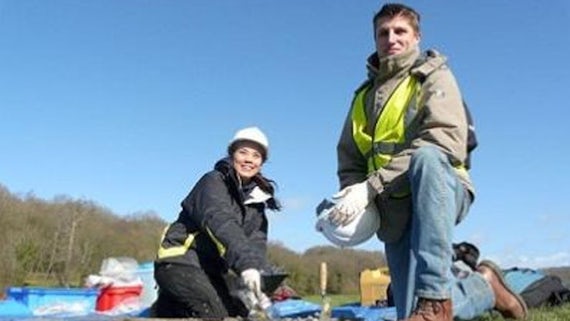New centre to train next generation of data scientists
27 October 2017

A brand new centre designed to train the next generation of data scientists has been awarded to Cardiff University.
The Centre for Doctoral Training in data intensive science (CDT) has been created as part of a £10m UK-wide investment from the Science and Technology Facilities Council (STFC).
Students enrolled into the CDT will embark on a four-year PhD designed to analyse data from astrophysics, accelerator science, nuclear and particle physics research.
The creation of the centre is in response to the growing issue of trying to sift through the mountains of data created by modern observational and experimental science facilities.
To address this problem, students will utilise sophisticated computational, statistical and programming techniques, including artificial intelligence and machine learning, to extract insights from huge datasets to make new discoveries.
Cardiff University’s Data Innovation Research Institute will lead the CDT, in collaboration with the University of Bristol and Swansea University.
The Data Innovation Research Institute.
The CDT will also incorporate industrial partners and will offer comprehensive training in data intensive science through cutting edge research projects and a targeted academic training programme. This will be complemented by secondments to national and international partners.
Eight new CDT’s have been created as part of the STFC’s £10m investment, training over 100 PhD students at 19 universities across the UK. The bulk of the funding comes from the £90m allocated for 1,000 new PhD places across all the UK’s Research Councils, announced in the 2017 Spring Budget as part of the National Productivity Investment Fund.
A kick-off event took place in Cardiff this week which brought together over 100 students from the eight CDTs for a two-day training event, with sessions covering advanced computing and data analysis skills as well as sessions on science communication and careers.
An inaugural dinner with the director of STFC, Brian Bowsher, also took place with talks from Cardiff University’s Deputy Vice-Chancellor Professor Karen Holford and Professor Patrick Sutton, head of the Gravitational Physics Group in the School of Physics and Astronomy.
STFC’s Executive Director of Programmes Professor Grahame Blair said: “This investment will not only bring on the next generation of much-needed data scientists with the skills and knowledge to become leaders in the field, it will be crucial in ensuring the UK research sector and the UK economy remains competitive on the world stage.”

“What I find particularly exciting about these CDTs is that we are giving students training in cutting-edge big-data methods to apply to both our research problems in physics and astronomy, and to real world problems during their industrial placements."
Gravity Exploration Institute
“For example, students at Cardiff University were directly involved in the recent gravitational waves discoveries. Our new students will be able to use state-of-the-art data analysis and machine learning techniques to ensure that we extract every possible signal from our data.
“Many students will go on to jobs in industry that make use of their problem solving, computational and data analysis skills. By incorporating a six-month industrial placement in the PhD, we give the students real-world experience early in their careers and the opportunity to build new collaborations with industry.”
Share this story
A wide-range of funding for doctoral study is available from research bodies, charities and trusts, governmental bodies and industry.





